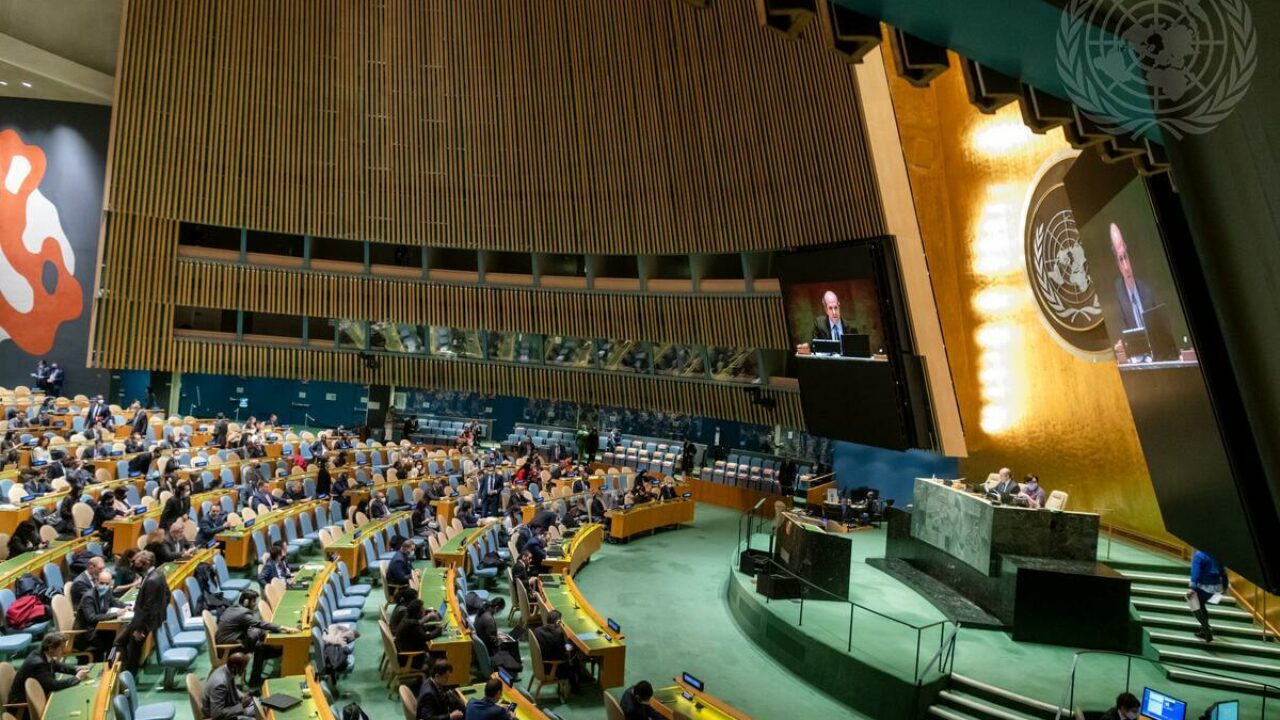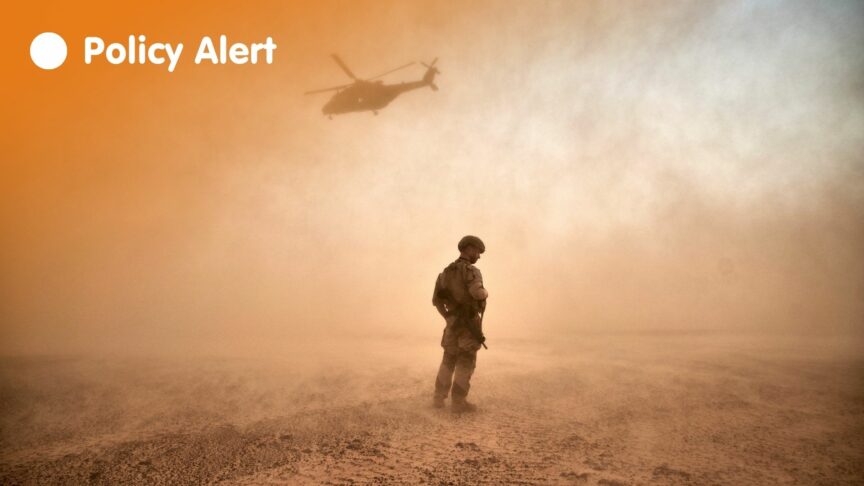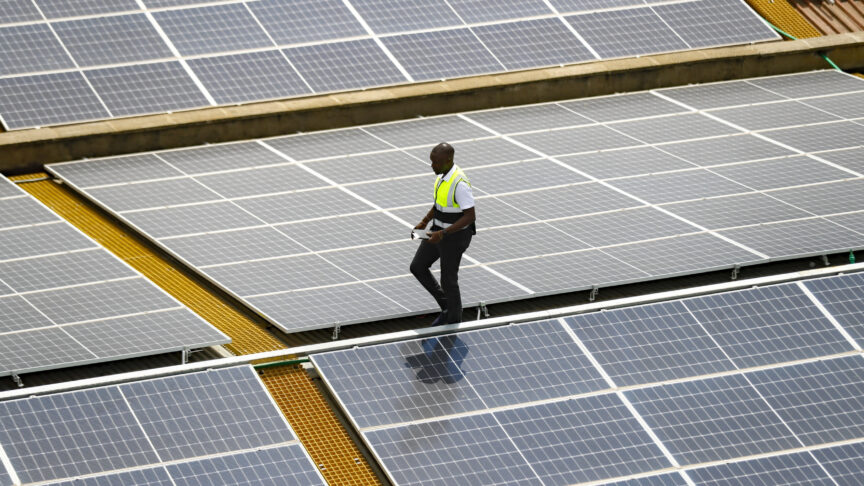Why UN votes shouldn’t define Europe-Africa relations
Many Europeans were disappointed with how African countries voted on UN resolutions to condemn Russia’s war on Ukraine. But they should remember that African states still need to diversify their partnerships
On 2 March, 141 countries voted in favour of UN General Assembly Resolution ES-11/1, which condemns “the 24 February declaration by the Russian Federation of a ‘special military operation’ in Ukraine”. Just five states voted against it, while 35 abstained. The resolution “demands that the Russian Federation immediately cease its use of force against Ukraine and to refrain from any further unlawful threat or use of force” and “that the Russian Federation immediately, completely and unconditionally withdraw all of its military forces from the territory of Ukraine within its internationally recognised borders”. On 24 March, a draft resolution blaming Russia for the humanitarian crisis in Ukraine produced similar tallies, albeit with ten countries changing their votes. Notably, Senegal approved the second resolution, having abstained from the vote on the first – to the surprise of many European Africa watchers. The overall result was never in question. However, many observers in Europe were disappointed with some African countries’ votes.
Twenty-eight African states voted in favour of Resolution ES-11/1 and one voted against it, while 17 others abstained and eight were absent. These abstentions and absences caused concern among leaders across Europe – prompting verbal contortions from countries such as Morocco as they tried to justify their positions. Reverting to cold war metaphors, some observers have characterised the 25 states that abstained or were absent as part of the Non-Aligned Movement – a grouping that Kwame Nkrumah, the first leader of an independent Ghana, described as representing an Africa that “face[s] neither East nor West; [it] faces forward.”
While Europe may have been disappointed with the results of the votes, Russia does not have much to celebrate
Nonetheless, while Europe may have been disappointed with the results of the votes, Russia does not have much to celebrate. By comparing African countries’ voting record on Resolution ES-11/1 with that on Resolution 68/262 of 2014 on the territorial integrity of Ukraine (following the annexation of Crimea), one can see that there has been a shift in their positions. Nineteen African countries voted in favour of the 2014 resolution and two against it, while 27 others abstained and six were absent.
Of the 27 that abstained in 2014, only nine – Algeria, Angola, Burundi, Congo, Mali, South Africa, South Sudan, Tanzania, and Uganda – also abstained in both of the 2022 resolutions. The EU should take this as a positive sign.
Nonetheless, a cold war framing of the Non-Alignment Movement does not help explain African countries’ votes in 2022; South Sudan is the only African one of them that is not a member of the grouping. More importantly, this narrative of African disengagement misses the point. Non-aligned or otherwise, African states are keeping their options open. The most telling aspect of the aftermath of the 2 March vote is not African countries’ decisions but the EU’s expectations of them. Indeed, the revival of cold war rhetoric and the classification of African states as either “pro-West” or “pro-Russia” misrepresents African views of partnerships in the international system.
African countries (like all others) seek partnerships based on their interests as well as their values – which do not always align with those of European states. Given their interests in various parts of the UN Security Council’s agenda, African countries are understandably reluctant to pick sides between veto-wielding members of the body.
European leaders should consider all this when they engage with their African counterparts. The sixth AU-EU Summit, held on 17-18 February (which already feels like a lifetime ago), produced a breakthrough in collaboration between the African Union Commission and the European Commission. But the wider Africa-Europe relationship will take time to develop. For the European Union, the summit marked the launch of its Global Gateway initiative and was meant to highlight opportunities to strengthen economic ties and cooperation on development and security issues, and to affirm common positions on international values and norms. However, it is now on the EU to fulfil its promises to invest in Africa, to engage with Africans as equal partners, and to provide the kinds of political and economic support that respond to the interests and needs of African states.
The fact that just under half of African countries did not vote in favour of Resolution ES-11/1 shows that many of them still feel the need to diversify their partnerships. They tend to see the EU as having been inconsistent on issues such as the wars in Yemen and Libya, vaccine equity, and travel restrictions in response to covid-19.
Meanwhile, European leaders believe that many of their African counterparts failed to stand in solidarity with Europe in its hour of need. This has led them to reflect on how they should react to this perceived slight – and how, despite the EU’s commitment to Africa and its development, Russia appears to have gained a foothold on the continent. European governments generally argue that, because African countries have signed up to joint declarations and other international agreements on good governance and human rights, invoking these issues in their engagements is not about conditions on cooperation but a mere affirmation of those shared commitments.
The EU evidently wants more than just a transactional relationship with African countries. But these conditions sometimes put it at a disadvantage relative to other powers. Some African leaders deride the EU for selectively applying good governance and human rights conditions to states with questionable track records in both areas. One need only look at how leaders in the Sahel react to France’s simultaneous attempts to condemn the Malian junta, strengthen its ties with the leader of the recent coup in Burkina Faso, and make excuses for Chad’s constitutionally dubious Military Transitional Council.
Yet transactional partnerships need not limit the EU’s policy options. The issue is not how much support the EU offers to African countries, but how it does so. By shying away from transactional partnerships, Europeans become culpable for failed initiatives in a way that African countries’ other partners do not. One can see this in the difficult relationship between French, EU, and Malian officials that led to the arrival of Russian mercenaries in Mali and the withdrawal of forces under the French-led Operation Barkhane and Takuba Task Force.
The AU-EU Summit was not an achievement in itself but rather an attempt at a new beginning. No vote on a UN resolution is a referendum on Africa-Europe relations. The EU will need to fulfil the promises to invest in Africa if it is to convince African states that it has a new approach to its relationships with them. As part of this, Europe should stop characterising Africa as a problem to be solved – be it in terms of development or security. Even the EU’s latest attempt to reframe its relationship with Africa as an economic partnership – reflected in an AU-EU Summit objective “to promote an ambitious large-scale investment package in Africa” – implies an unequal partnership.
This concept lacks ambition. African leaders have repeatedly stated the need for Europe to see the relationship with the continent as a partnership between equals built on mutual respect and reciprocity. To truly renew the partnership, the summit should have announced a flagship economic initiative that bound the sides together through mutual commitments. The intra-European project to create Airbus could serve as a model for this.
Moreover, the Global Gateway should help create an image of the EU as an attractive partner that can be flexible without compromising on its values. As Michaël Tanchum argues, the union needs to invest in the creation of large-scale, value-added production in sub-Saharan Africa, move Africa-Europe relations beyond the donor-recipient dynamic, and invest in African innovation. The EU should take African countries’ recent votes on UN resolutions for what they are: attempts to protect their individual interests. If the union is to convince them to align with it in international forums, it still has a great deal of work to do.
The European Council on Foreign Relations does not take collective positions. ECFR publications only represent the views of their individual authors.






